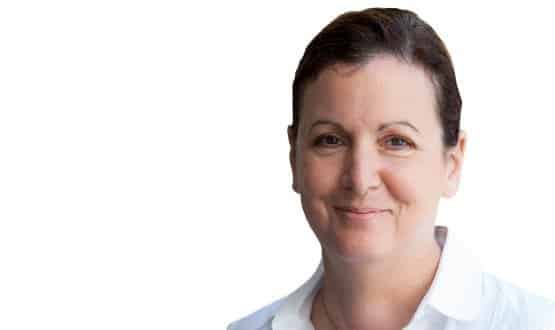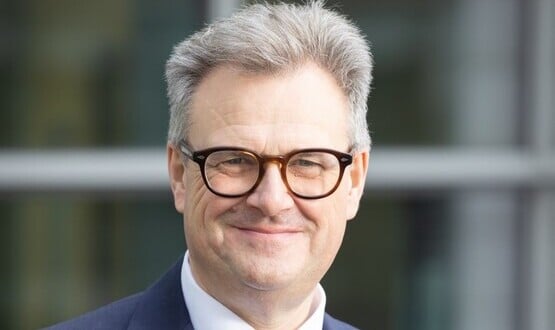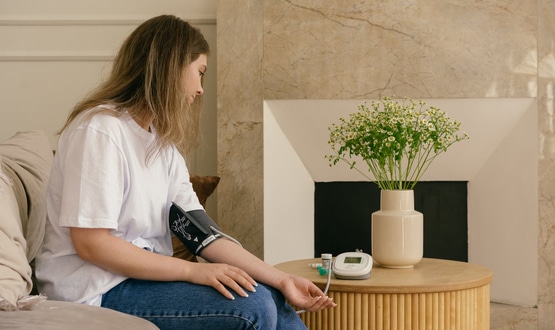Health CIO profile: Eileen Jessop
- 22 September 2014

Eileen Jessop’s long history with the NHS began not with a passion not for health, but for coding.
She first started working with the health sector when she went to Southern Derbyshire Acute Hospitals NHS Trust to gain practical experience for her computer science degree.
“I came in on a placement for college to do some research and development. I was a programmer and I was assigned to work with a clinician on a piece of research, and it grew from there,” she says.
A career leading to Leeds
After starting work at the same trust as a developer, she jumped in and out of the NHS, also working for commercial healthcare companies. Then, 12 years ago, she got a job at Calderdale Healthcare NHS Trust as its head of IT.
“It was really because of the opportunity that it gave me to start an organisation from scratch, which is very unusual,” she says of taking on this role. “I could get the services right from the start.”
Jessop set the trust’s standards for its IT services and support, as well as working in a technical services management role for a private finance initiative construction project.
The seed for her move to Leeds was planted in 2010, when she wanted to start work on a joint project to develop an open source integrated care record across Leeds, Mid Yorkshire and Huddersfield.
“I was unable to get buy-in from my host organisation to back it, but several months after that I had the opportunity to be seconded into Leeds and work with Tony Shannon [the trusts chief clinical information officer] to do something around patient records,” she says.
“I got the opportunity to work in Leeds, and within the first few months I got a business case through.”
She moved to the trust permanently in 2011, and started working on getting the EPR off the ground, with a focus on an open source clinical portal developed in-house.
Managing expectations
Jessop says the trust has made good progress with the EPR: “We’ve started to bring in new functionality every few weeks to clinicians”.
The trust is still working on maximising the system’s full capabilities, including clinical noting, electronic forms and discharges, results reporting and requesting, and electronic prescribing. However, she says it is “on track” to deliver a full system with read-write access next year.
The EPR will provide what Jessop describes as the “underlying architecture” for the Leeds Care Record, a city-wide initiative led by the Leeds Health and Social Care Transformation Programme to link up health and social care for the city’s patients.
Jessop says the record has been rolled out across the trust’s hospital, primarily in read-only form, although she says the trust has “got the right capability” in bed management and the many patient view. “As a GP in Leeds and Bradford, you know where your patients are and what they’re doing in Leeds.”
She says the main problem with her work is not encouraging clinicians to engage with the development of the EPR, but in fact tempering their expectations as the system is developed.
“The challenges are getting people to wait and be patient, getting time, and getting control of requirements.
“I wouldn’t say the challenge has been working to get clinical buy-in, but that they just want too much. We need to keep pacing the development.”
Open to open source
Shannon is well known for its enthusiasm for open source solutions for healthcare, but Jessop acknowledges that others have some concern about the approach. She says the trust is certainly not averse to looking for help, when it needs it.
“People say, can’t the commercial sector do better? We’re not hiding from that – we want them to come in to help, we want to make it stick across the region.”
She adds that the trust is working on a deal with “a big commercial player” that could be concluded in the next few months, with the aim of improving collaboration and communication and potentially introducing new elements of technology into the EPR.
The trust has also had to address concerns from neighbouring organisations that it is becoming too dominant in its area, but Jessop is quick to stress that it has no desire to assume the responsibilities of other trusts.
“It feels like Leeds is more engaged with the region, and as an organisation, we’re keen to collaborate and not take over. We’re already a huge organisation, we just want to make sure our systems and others’ work better together.”
Competing and co-operating
Outside of the work on the EPR, other major projects are also going ahead. Jessop says an internal case has been prepared for the NHS Trust Development Authority for a multimillion-pound commitment to establish two data centres and make a major investment to upgrade and replace the trust’s computers.
“We’ll be turning around the organisation’s IT infrastructure and support services to make it a leading edge service, but it’s going to take a few years.”
While Leeds is improving its IT infrastructure and systems, Jessop says she is conscious that more can be done to make it a leader within the NHS.
“If you talk to people in the hospital, you can see quite a lot of change in the IT, but there’s not been enough change [in the organisation] – there is recognition that more is needed.”
She is also keen to see a change in the approach that the NHS takes towards the relationship between trusts, with more of a focus on collaboration and less competition between the different organisations.
“There is a difficulty in the NHS with competition and collaboration that makes all our lives really difficult. On one level, we’re expected to collaborate, and that’s what we want to do.
“But should we be competitive with each other? I don’t think so. Should we be competitive in the world? Yeah, I think so.”
Not IT, people
Until February, the trust had an executive position on the board for its then-CIO, Alison Dailly. However, a new chief executive put the position under the director of finance.
Jessop believes that having the informatics perspective represented at a board level is essential if a trust’s IT projects are to succeed.
“I think it’s key now as we grow, and the organisation and clinical records become a digital record. The more we digitise, the more data we have and the more information we can take, so having a presence at that level is key to the running of the business.”
Jessop says she is “particularly proud” of the trust’s work within the region, saying it has worked closely with clinical commissioning groups and other providers to ensure their projects are a success. It is about people and relationships that make ambitions like what we have in Leeds succeed.”
| Fact box | |
| Name: | Eileen Jessop |
| Job title: | Deputy director of informatics, Leeds Teaching Hospitals NHS Trust |
| How long in current job? | Three years |
| Biggest project: | Development of the open source portal and EPR. |
| Favourite technology: | GPS: “I like having GPS in my car, because then I don’t have to allow time to get lost” |
| Best thing about your job? | “Working in Leeds: it’s a really exciting place, there’s so much happening and it’s great that we have got a close collaboration with the universities. That alone makes it a really interesting place to work” |
| Least favourite thing about your job? | “For me, and I can’t shirk the responsibility, it’s finding the funding; constantly trying to find the funding to make things happen.” |
The Health CIO Networkannual conference will be returning to EHI Live 2014 on Wednesday, 5 November, with a focus on the ‘big picture’ in NHS IT and on professionalism and leadership.
Full details of the exhibition, keynote speakers, co-located conference and feature areas of this year’s EHI Live, which takes place 4-5 November the NEC in Birmingham, are on its website. Registration is free for all and open now.





